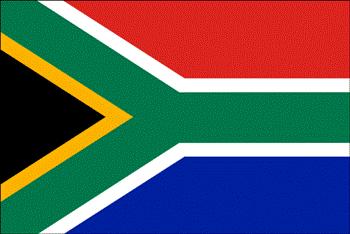South Africa NGO’s may challenge AU ICC decision before court
July 11, 2009 (WASHINGTON) — A number of South African human right groups and non-governmental organizations challenged Pretoria’s endorsement of a resolution by the African Union (AU) asking its ICC members not to cooperate with the court in the extradition of Sudanese president Omer Hassan Al-Bashir.

The resolution stirred outcry among human right organizations worldwide and Darfur rebel groups as well who said it amounts to granting impunity.
Al-Bashir faces an outstanding arrest warrant by the ICC in connection with crimes allegedly committed in Sudan’s Western region of Darfur.
The AU criticized the warrant saying it imperils peace efforts in the region.
It was reported that the resolution was adopted by consensus but the Vice president and foreign minister of Botswana said that the issue was not properly debated and member countries were forced to accept it under pressure from Libya which chairs the pan-African body.
The South African government came under fire from newspapers and legal experts who said that president Jacob Zuma was reneging on his country’s legal obligations.
Professor Du Plessis from University of KwaZulu-Natal said that resolution directly conflicts the South African constitution.
“South Africa is also one of only three states on the continent to have domesticated the ICC statute’s provisions into its national law,” he wrote in ‘Cape Town’ newspaper
“South Africa’s ICC implementation legislation, passed by our Parliament as Act 27 of 2002, holds in Section 8 (2) that were al-Bashir to be present on South African territory, and the ICC were to request his arrest, the director-general of the Department of Justice “must immediately on receipt of that request, forward the request and accompanying documents to a magistrate, who must endorse the warrant of arrest for execution in any part of the republic,”
The South African NGO’s including the Centre for Applied Legal Studies, the International Centre for Transitional Justice, the Khulumani Support Group and Lawyers for Human Rights — will petition President Zuma and his government to take a stand against the AU’s position.
The South African ‘Times’ newspaper quoted the groups as saying that the resolution is “unconstitutional” if the government agrees to it.
The groups said that the meeting’s declaration “requires it to break its international treaty obligations and to defy its own law and constitution”.
They urged Zuma to publicly state that his government would honor its obligations or else the group “will decide how further to engage and respond”, which could include court action.
Unidentified South African officials speaking to ‘Cape Town’ newspaper acknowledged that government “is in a difficult position” over the resolution which conflicts with its obligations under the Statute.
The officials said that they are deeply involved in the Sudan peace processes of Darfur and South Sudan.
They further said that they blame the ICC for not engaging with the AU on trying to suspend the arrest warrant for 12 months under Article 16 of the Rome Statute. Only the UN Security Council (UNSC) is empowered to invoke a deferral.
“How is it going to help the ongoing peace processes in South Sudan and Darfur, if Al-Bashir is behind bars?” one official said. “We need him to take those processes forward.”
The AU decision on non-cooperation with the ICC will not take place until it is ratified by the parliament the officials said. It is not clear how long the process will take as it involves a complex legal issue
Business Day cited the spokeswoman of the Department of International Relations and Co-operation Nomfanelo Kota as saying that while South African government would explain its position in due course, the AU resolution was not indicative of the government’s attitude to the ICC.
(ST)
